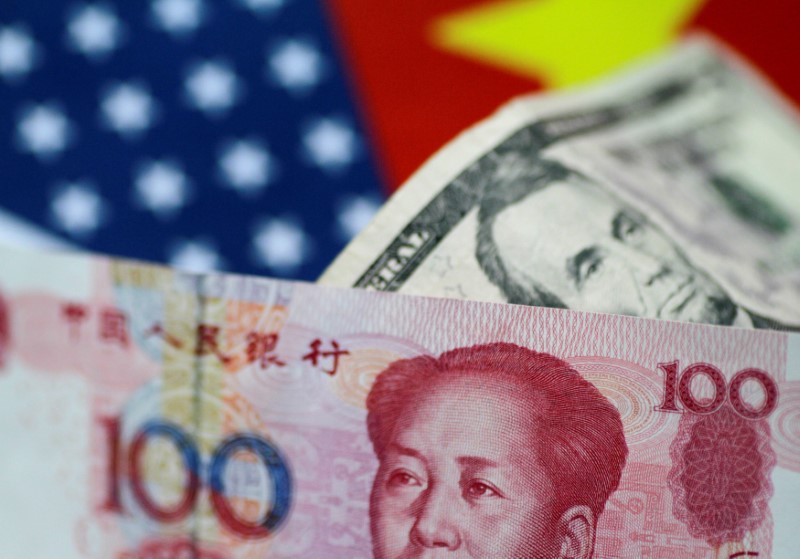Investing.com — Most Asian currencies fell on Tuesday as markets awaited more cues on U.S. monetary policy, with the Chinese yuan trading near seven-month lows after the People’s Bank cut its benchmark lending rates.
The dollar steadied in Asian trade after a U.S. market holiday on Monday, with the trading flat while added 0.3%. Focus this week is largely on a before Congress on Wednesday.
Yuan slips on loan prime rate cue, bleak economic outlook
The fell 0.2% to 7.1744 to the dollar, trading just shy of its lowest level since late-November.
The People’s Bank of China (PBOC) cut its benchmark (LPR) by 10 basis points, as widely expected, as Beijing struggles to shore up a slowing economic recovery.
The move was largely telegraphed by the PBOC, given that the central bank cut its short and medium-term lending rates last week. The rate cuts come as a string of weak economic readings for April and May cast doubts over a Chinese rebound this year.
Several major investment banks, most recently Goldman Sachs (NYSE:), had also cut their forecast for Chinese economic growth this year, stating that current stimulus measures would be insufficient in fostering an economic recovery.
Concerns over China weighed on broader Asian currencies, with the down 0.4%, while the lost 0.2%.
The was the worst performer for the day, sliding 0.7% after the showed that the bank was still considering a pause in its rate hike cycle, despite surprise hikes in May and June.
The rose slightly from near seven-month lows to the dollar, amid continued speculation over whether the government will once again intervene in currency markets to support the yen.
The Japanese currency has faced renewed pressure following dovish signals from the Bank of Japan, which plans to maintain its ultra-loose policy for the time being.
Fed fears persist ahead of Powell testimony
Fed Chair Powell is expected to provide more cues on U.S. monetary policy when he testifies before Congress on Wednesday. Markets remained wary of any more hawkish signals on interest rates.
While the Fed had last week, the central bank still forecast a higher peak interest rate this year, which could see U.S. rates rise at least two more times.
Such a scenario bodes poorly for Asian currencies, as it widens the gap between risky and low-risk yields.
Read the full article here
